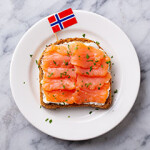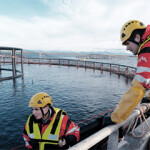Thai Union's net profit drops despite record Q1 sales

Record first-quarter sales weren’t enough for Thai Union to overcome pandemic and supply chain strains, and the company posted a drop in its net profit in its Q1 results.
Thai Union reported its net profit in the period spanning January to March was THB 1.7 billion (USD 49.1 million, EUR 46.7 million), down 3.2 percent from the same period last year. The company attributed the decline to the “ongoing impacts of the pandemic and supply chain challenges, [financial exchange] loss, and significantly challenged Red Lobster operations.”
Its operating profit was the same value as its net profit – THB 1.7 billion (USD 49.1 million, EUR 46.7 million) – a drop of 10.9 percent year-on-year. The company cited an increase in logistical costs and marketing expenses as its primary pain-points.
Thai Union said it encountered “unprecedented levels of inflation in 1Q 2022, both from key costs and ongoing logistics issues.” A hike in freight rates cost the company THB 710 million (USD 20.5 million, EUR 19.5 million) in the Q1, compared to the THB 200 million (USD 5.8 million, EUR 5.5 million) freight cost in the same period last year.
The company’s lower profit numbers were in contrast to its first quarter in 2021, when it achieved a record profit of THB 36.3 billion (USD 1.05 billion, EUR 997.4 million) due to growth in most of its core segments.
One upside for Thai Union in Q1 2022 was its ambient seafood sales, which rose 14.3 percent compared to a year ago, supported by a rise in its tuna sales in most major markets and higher selling prices. Thai Union’s ambient seafood category features shelf-stable products including tuna, sardines, salmon, mackerel, and herring – which are largely sold through retail channels.
Sales of its frozen and chilled seafood also rose, increasing 14.2 percent year-on-year thanks to high demand worldwide from the foodservice sector as restaurant closures and other pandemic-related restrictions were lifted, as well as due to better selling prices. Its sales of pet-care and value-added products also grew, increasing 27.2 percent, driven by a significant increase in sales of both existing and new products.
The company’s losses from its affiliate Red Lobster in the first three months increased to THB 335 million (USD 9.7 million, EUR 9.2 million), compared to losses of 226 million (USD 6.5 million, EUR 6.2 million) in the same period last year. Last month, Red Lobster’s CEO Kelli Valade resigned after only eight months in the role, a move one financial analyst covering the company described as “very, very, very bad.”
The company’s share of profits from its joint venture with Indian Avanti Frozen Foods was lower year-over-year due to “its weakening feed and frozen businesses from higher raw material prices, overall inflation, and remaining supply chain challenges," Thai Union added.
In response to the numerous challenges it is facing in the global marketplace, Thai Union said it has revised its financial targets for this year, with the growth of sales being increased to between 7 and 8 percent from previous 4 and 5 percent. The company kept its planned capital expenditure to THB 6 billion (USD 173 million, EUR 164 million) for 2022.
Photo courtesy of Thai Union Feedmill






Share